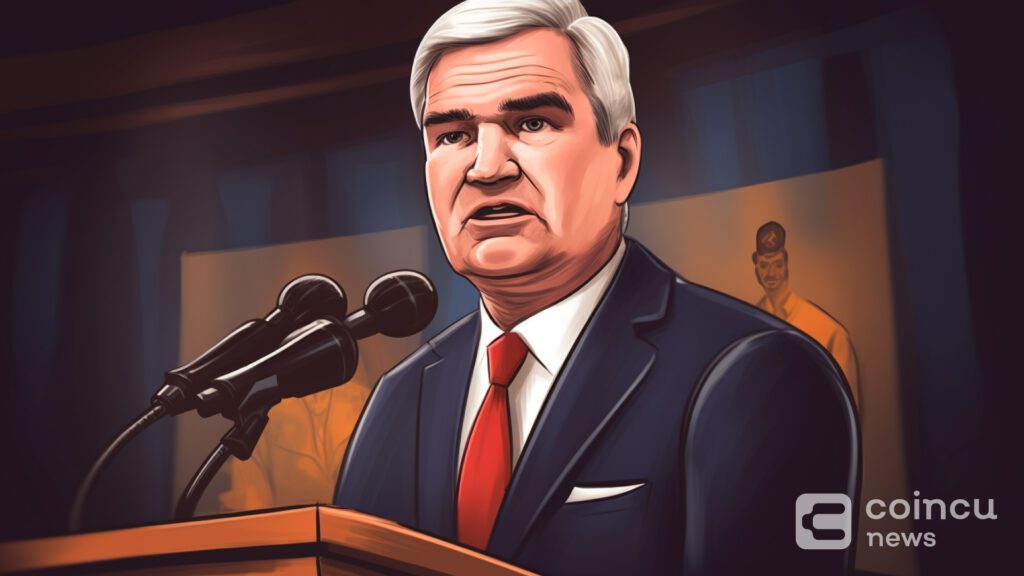Key Points:
- Congressman Tom Emmer supports the SEC Stabilization Act, seeking to revamp the SEC and oust Chair Gary Gensler.
- Emmer and Congressman Davidson criticize Gensler, branding the SEC as “corrupt” and proposing his removal in 2024.
In a bold move, US Congressman Tom Emmer has voiced his support for the SEC Stabilization Act, a bill designed to overhaul the U.S. Securities and Exchange Commission (SEC) and oust its current chair, Gary Gensler.

Read more: Tom Emmer Criticizes Gary Gensler As A Bad Faith Regulator On Crypto
US Congressman Tom Emmer Endorses SEC Overhaul Amidst Growing Leadership Criticism
Emmer, a staunch advocate for the cryptocurrency industry, took to social media to criticize Gensler’s leadership, accusing the SEC of favoring Wall Street over Main Street.
Congressman Tom Emmer labeled the SEC chair as “ineffective” and “incompetent,” asserting that Gensler is ill-suited to navigate the evolving financial landscape. The Congressman revived the hashtag #FireGaryGensler, reflecting a broader sentiment within the crypto community dissatisfied with the SEC’s current direction.
This latest endorsement follows similar concerns expressed by Congressman Warren Davidson, a co-sponsor of the bill, who labeled the SEC as “corrupt” and suggested 2024 as an opportune time to remove Gensler from his position.
Critics argue that the SEC, under Gensler’s leadership, has shown bias in its decisions on crypto matters, including delays in Spot Bitcoin ETF applications and regulatory frameworks.
Despite the mounting criticism, Gary Gensler has not responded to Emmer and Davidson‘s calls for his removal. The approval of the SEC Stabilization Act remains uncertain, with no clear path forward for the bill at this time.
As tensions escalate between lawmakers and the SEC chair, the fate of Gensler’s leadership hangs in the balance, reflecting broader concerns about the regulatory approach to the rapidly evolving cryptocurrency landscape.
| DISCLAIMER: The information on this website is provided as general market commentary and does not constitute investment advice. We encourage you to do your own research before investing. |






















